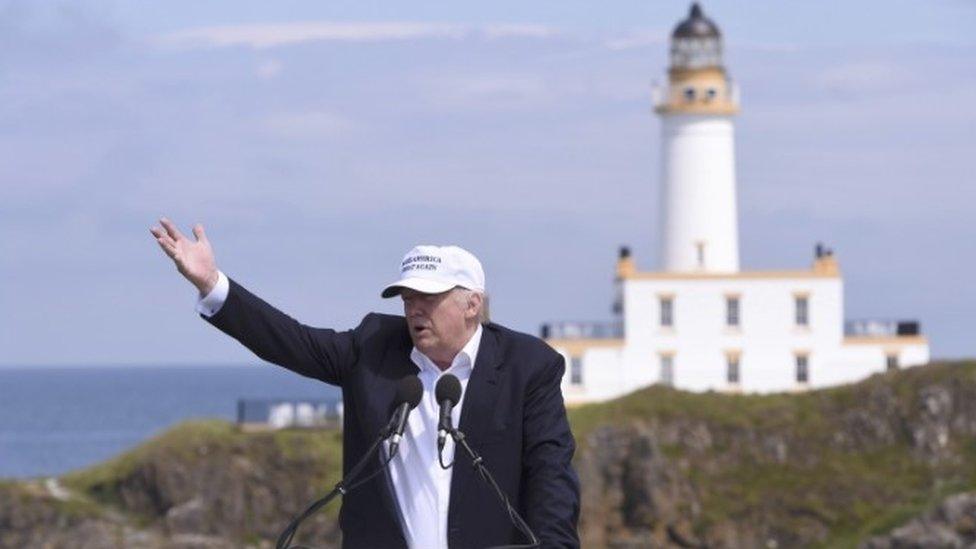COP26: Climate summit policing will cost more than £200m
- Published
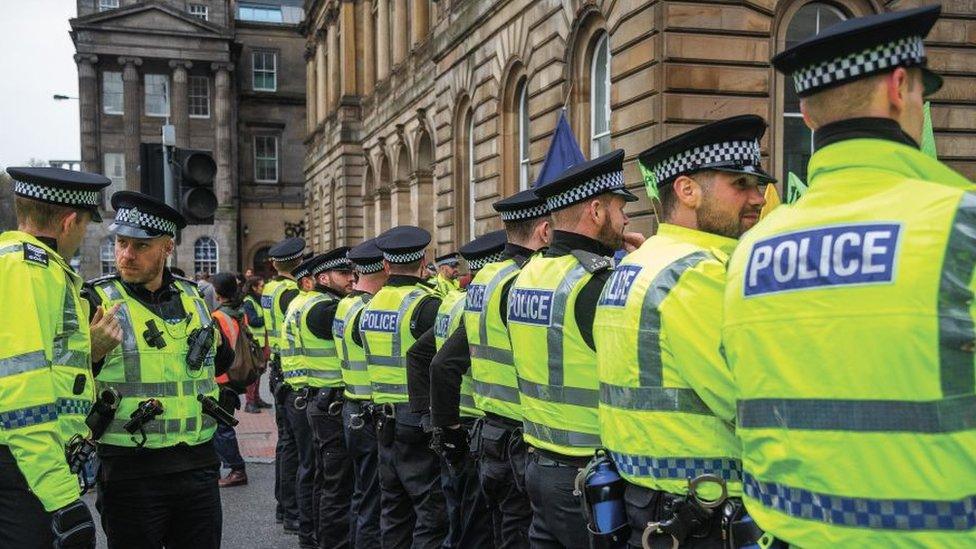
Police stood guard at a climate change protest by Extinction Rebellion in Edinburgh last summer
Policing the UN climate change conference in Glasgow will cost more than £200m, Scotland's chief constable has said.
Iain Livingstone told the Scottish Police Authority (SPA) the COP26 event in November would be one of the largest ever staged in the UK.
The chief constable also said Police Scotland had taken £200m a year out of the core cost of policing.
This was despite demands on officers increasing in 2019, he said.
Mr Livingstone pointed out that there had been an almost 20% rise - from about 1,500 to 1,800 - in the number of loyalist and republican marches in Scotland, as well as a higher number of spontaneous protests such as those by Extinction Rebellion.
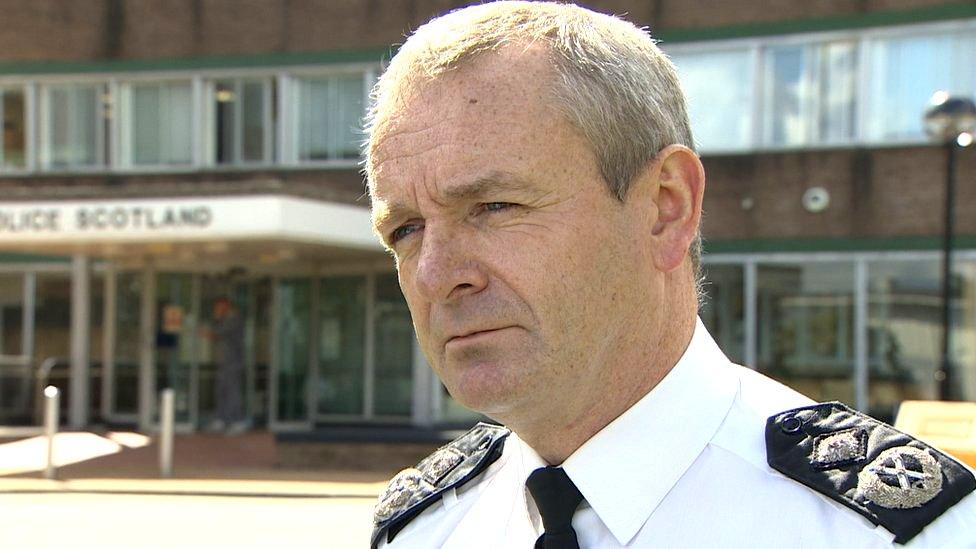
Chief Constable Iain Livingstone said a considerable number of officers would be coming to Scotland from south of the border
Acting chairman of the authority, David Crichton, told the board meeting that the current number of officers in Scotland was "not sustainable".
He said the vast majority of the police budget had already been allocated to cover officer and staff costs.
'Simple arithmetic'
He added that the Scottish Police Authority had been raising concerns about financial sustainability over the past four or five months, along with the chief constable and Audit Scotland.
"There is a structural deficit in the policing budget," he said. "It's simple arithmetic, it's not complicated mathematics, it's simple arithmetic.
"With almost 90% of the budget allocated to officer and staff costs, it does mean that difficult choices are going to have to be made over the next weeks and months - difficult choices by government, by the authority and by Police Scotland."
Mr Livingstone told the meeting: "At the moment there's an operational imperative, I sense an element of political imperative, to maintain officer numbers and the challenge for us is showing the value that having a strong police service provides and at this stage, making a case for further investment.
"We've had real-time protection but that's only kicked in since 2015-2016, but the core cost of policing is £200m less every year than it was prior to Police Scotland coming into being (in April 2013).
"So our deficit is because actually our budget has been cut even greater than the savings that we've managed to achieve.
"So my pitch is, can we get some of those savings back?"
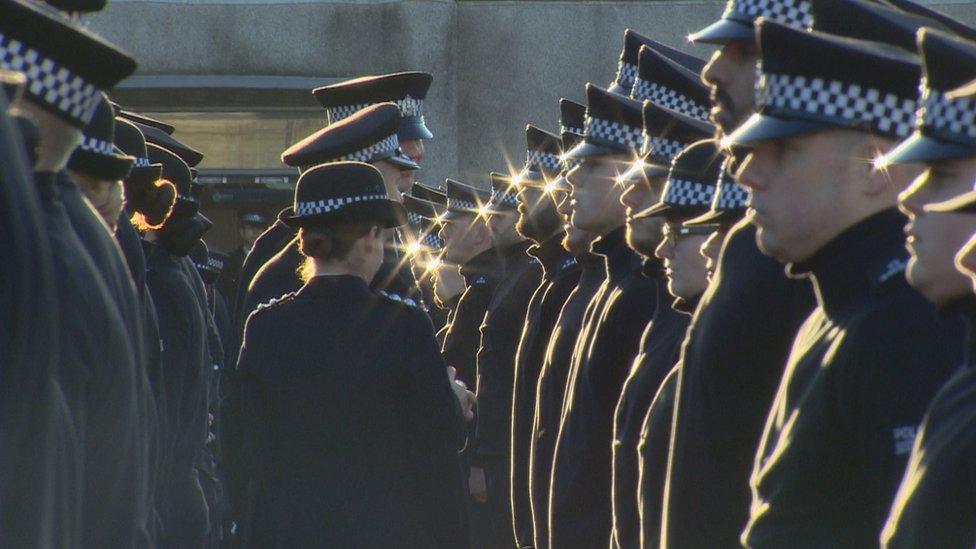
The meeting was told that the current number of police officers in Scotland was "not sustainable"
Mr Livingstone also told the SPA that a considerable number of officers would be coming to Scotland from south of the border to help police COP26.
He said their accommodation costs alone would be "tens of millions of pounds" and deposits on accommodation were estimated at £2m, which needed to be paid by next month.
Members were also told Police Scotland's plans to reduce officer numbers by 400 this year had been put on hold.
Mr Livingstone said major events such as the European Football championships and continuing uncertainty about the Brexit settlement were adding to pressure on the force even before policing of COP26 was taken into account.
Up to 90,000 people - delegates, observers, heads of state and media - are expected to attend COP26, over 12 days from 9-20 November.
A Scottish Police Authority report , externaldescribed it as the largest mobilisation of police officers in the UK.
Scottish ministers say they expect the UK government to cover the "core costs", including emergency services funding.
The UK government has said discussions with the Scottish government on the conference costs are "currently ongoing".
Up to 200 world leaders are expected to attend COP26.
It will be held at the Scottish Event Campus (SEC) but other venues across the city will also host functions and meetings for heads of state and other dignitaries.
The SEC will be handed over to the UN for the duration of the conference. Known as the "blue zone", it will become international territory, subject to international law.
- Published15 January 2020
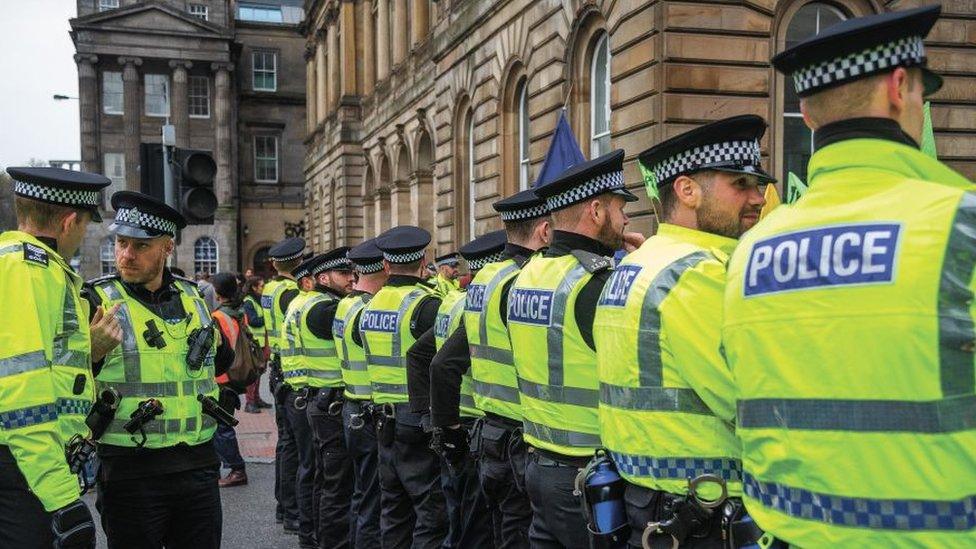
- Published1 January 2020
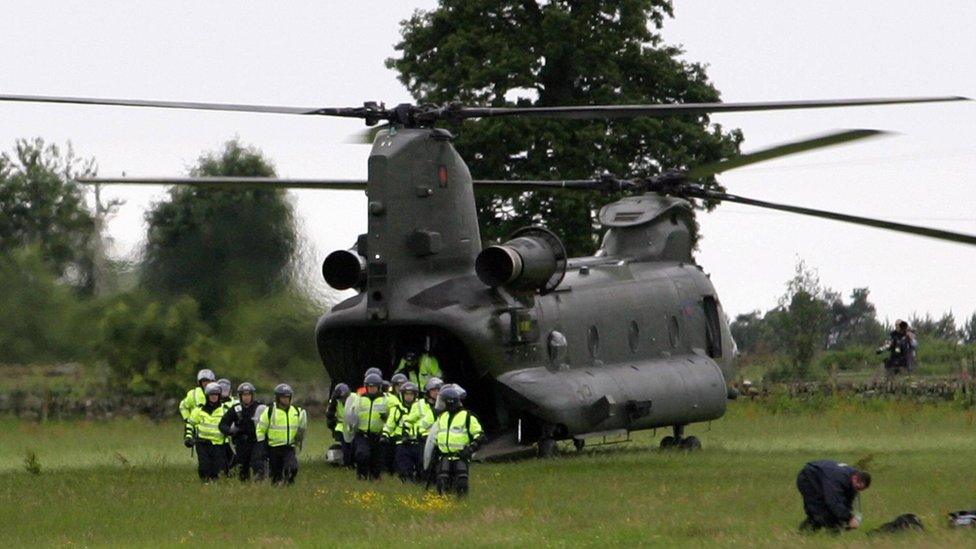
- Published17 December 2019
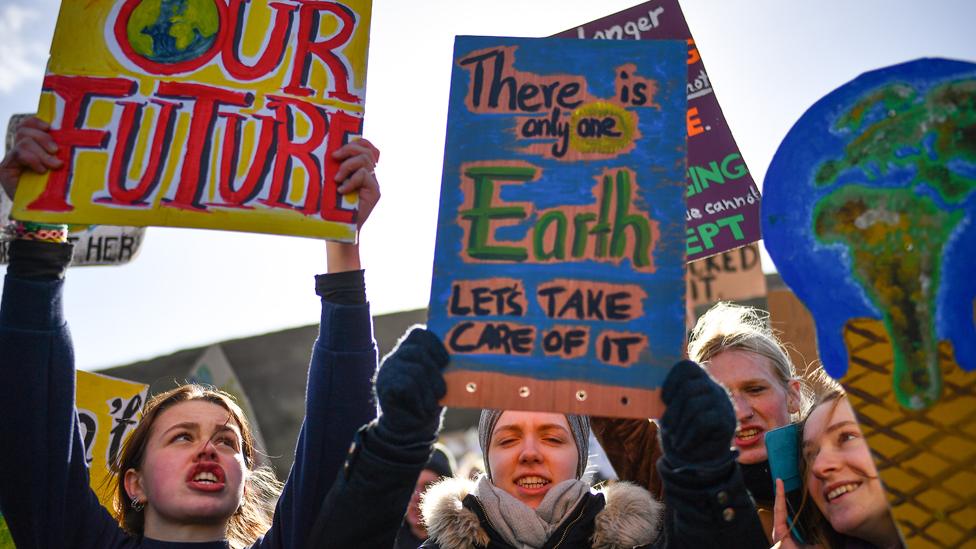
- Published16 December 2019
- Published30 January 2019
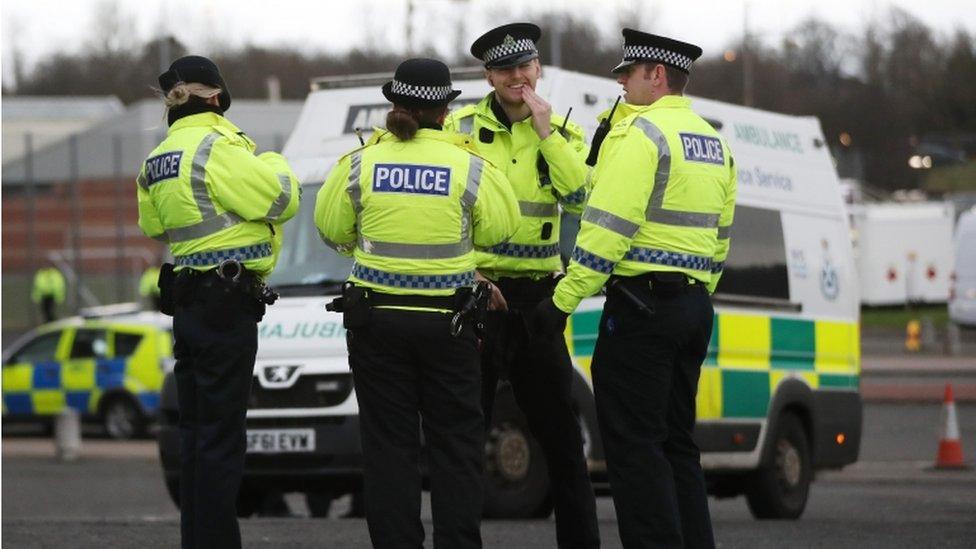
- Published3 July 2018
